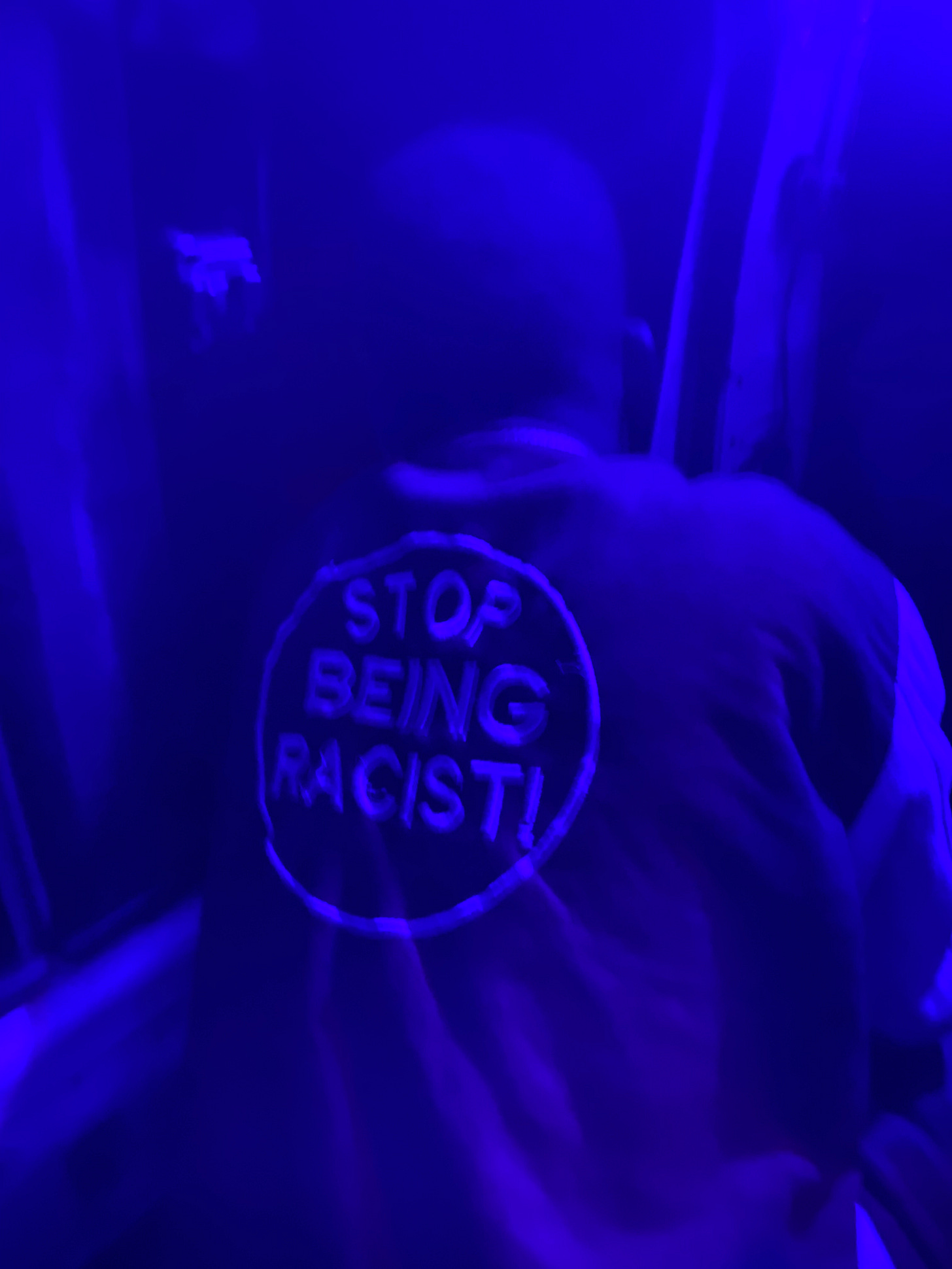
Kombi haimiswe nemaoko (You don’t stop a kombi with your hands)
We approached a roadblock, a familiar sight on Zimbabwe’s roads, and the Kombi slowed down behind a private car. The police had teamed up with the ZBC (Zimbabwe Broadcasting Corporation) radio licensing department. This too is a familiar pairing. The private car went on, waved forward by the cop who flagged down the Kombi with her other hand. The driver smiled at her, and she smiled back and said, “Mira apo,” (Park over there) the driver started negotiating, but she shook her head, “Ndati mira apo,” (I said park over there) she repeated, pointing at a spot by the side of the road.
The driver began driving forward slowly, feeling his way out of the roadblock. Instead of stopping or pulling over, he shifted gears into second gear. That’s when the cop with the gun jumped out of the shadow of a tree where he was hiding from the sun. Gun slung on his back, he rushed into the road. He waved down the Kombi frantically, but the driver swerved neatly around him. And just like that, the kombi escaped the extortion stop called a roadblock in Zimbabwe.
The conductor laughed and said, “Aaah, kombi haimiswe nemaoko” (You don’t wave down a kombi with your hands) I joined him in laughter. I too was wondering how this would play out. This was my first time seeing how ineffective the officer with the gun could be. The officer is a feature of all police roadblocks in Zimbabwe and is the intimidating factor that stops many from running away from the stops. But this time, it was not. What an adventure using Zimbabwean public transportation. The next one involves Mshika-shika.
Mshika-shika
The Mshika-shika swung around into the oncoming lane. It was empty as we approached the police-controlled intersection. The robots/traffic lights were dead at this busy intersection. Traffic lights having years-long outages is something of a regular occurrence as well. Anyway, the cross traffic was being told to go by the officer, so we would have to stop. But our Mshika-shika driver edged into the road anyway. He seemed oblivious of the sedan coming straight at us from the right. That driver had to slam on the brakes, and you could see the fury on his face. He wanted to yell at the driver of our car, but he would have to stop in the middle of the road to do that and delay traffic more. “Aaaah, iwe” (Yo) the driver remarked, “Hauzive here kuti Mshika shika goes first. Which car goes first, Mshika shika.” he remarked at the driver in the sedan. A driver who could not hear him, but he said it anyway. And he was rewarded with laughter from the passengers, including myself. With the laughter came even more remarks from the driver as we drove on.
“Iyo kombi, haimire paGive Way, iwe ndiwe unototsika” (There look at that kombi, it doesn’t even stop at a Give Way, you have to step on the brakes.) The driver of the Mshika-shika explained with fanfare. And indeed the Kombi had approached an intersection with a give way sign and ignored it. So the driver concluded, “Which car goes first? A Kombi. If there is no kombi then mshika shika” To which more passengers laughed.
Analysis
It’s super interesting to use public transport for local city business and hitchhike on longer treks. It’s been quite the insightful experience as I see how invaluable the Kombi and Mshika-shika networks are to making Zimbabwe’s economy tick. Without these guys, many people would not get to work on time, or get to work at all. And yet the regulations governing these vital parts of the transportation network make it difficult to enter unless you do so without permits. Ergo the many roadblocks.
It’s estimated that there are 16,000 kombis operating in Harare alone. They further claim that only 3,000 are legally licensed, which is quite a staggering gap. But the stories from these vehicles, their drivers, and their conductors can be funny and intense. As we drive, small communities form over the course of a ride and a lot is shared. This is how you get around in Zimbabwe, though InDrive (A kind of Uber) is beginning to gain ground in the country.
From running from a police officer with an AK47 to ignoring traffic police and yelling at the driver who has the right of way, one can say these vehicles are a menace. And yet they are also the backbone of the Zimbabwean transportation networks. They get the job done sometimes on roads with so many potholes it’s quite costly to try to maintain the vehicles. There is so much to unpack here but…
…that’s all for this week’s adventures. Until the next!



